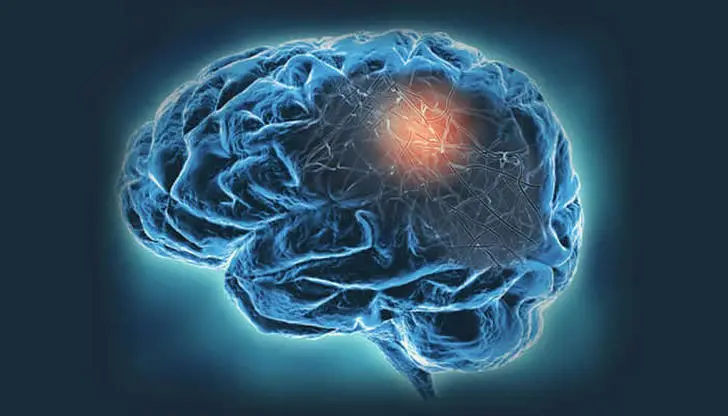Understanding Dementia: A Comprehensive Guide
Advertisement

Dementia encompasses a range of diseases that progressively impair memory, thinking, and the ability to carry out daily activities. This condition gradually worsens, impacting not just the individual but also their loved ones. While it primarily affects older adults, it’s important to recognize that it doesn’t affect everyone with age. By raising awareness and understanding, we can better support those facing dementia and take proactive steps to improve their quality of life and care.
What is Dementia?

Dementia is a syndrome caused by various diseases that damage the brain's nerve cells. This damage results in a decline in cognitive functions, which includes thinking, remembering, and reasoning. For instance, a person with dementia might struggle to recall recent events or become disoriented in familiar settings. While consciousness remains intact, the cognitive decline is often accompanied by changes in mood, behavior, and emotional control.
Risk Factors for Dementia

Several factors can increase the likelihood of developing dementia. These include:
• Age: Dementia is more common in people aged 65 and older, though it can affect younger individuals.
• High Blood Pressure and Diabetes: Conditions like hypertension and diabetes can contribute to brain damage.
• Obesity: Being overweight or obese is linked to higher dementia risk.
• Smoking and Excessive Alcohol Use: Both smoking and heavy drinking can negatively impact brain health.
• Physical Inactivity: Lack of exercise is associated with an increased risk.
• Social Isolation and Depression: Loneliness and untreated depression can contribute to cognitive decline.
For example, a 70-year-old with high blood pressure, diabetes, and a sedentary lifestyle might face a higher risk of developing dementia compared to someone who maintains a healthy lifestyle.
Recognizing the Symptoms

Early symptoms of dementia can be subtle but become more pronounced over time. They may include:
• Memory Issues: Forgetting recent events or where items are placed.
• Disorientation: Getting lost in familiar places or losing track of time.
• Difficulty with Tasks: Struggling with problem-solving or following conversations.
• Behavioral Changes: Mood swings, irritability, or withdrawal from social activities. Consider a scenario where a person begins to forget appointments, misplace important items, or get confused about the day of the week. These signs, though concerning, can sometimes be subtle in the early stages.
Common Forms of Dementia

Dementia can arise from various underlying causes:
• Alzheimer’s Disease: The most prevalent form, accounting for 60–70% of cases. It primarily affects memory and cognitive abilities.
• Vascular Dementia: Results from brain damage due to stroke or blood vessel problems.
• Dementia with Lewy Bodies: Characterized by abnormal protein deposits in nerve cells.
• Frontotemporal Dementia: Involves degeneration of the frontal lobes, affecting behavior and language. For instance, a person with Alzheimer’s might experience severe memory loss, while someone with vascular dementia might have problems with judgment and reasoning due to past strokes.
Managing and Treating Dementia

Although there is no cure for dementia, several approaches can help manage symptoms and improve quality of life:
• Medications: Drugs like cholinesterase inhibitors (e.g., donepezil) and NMDA receptor antagonists (e.g., memantine) can help manage symptoms of Alzheimer’s and other dementias.
• Lifestyle Changes: Regular physical activity, a balanced diet, and mental stimulation can benefit those with dementia.
• Support Systems: Engaging in social activities and maintaining connections with friends and family can provide emotional support and improve overall well-being.
For example, incorporating daily walks, participating in hobbies, and keeping a routine can help maintain cognitive function and emotional health. Self-Care and Support for Caregivers
For individuals diagnosed with dementia, self-care is crucial:

• Stay Active: Regular exercise and a healthy diet support overall health.
• Stay Engaged: Continuing to enjoy hobbies and social activities can help maintain cognitive function.
• Plan Ahead: Organize important documents and decisions in advance to ease future challenges. Caregivers also face significant challenges. They should seek support from family, friends, and professional resources. Taking breaks, practicing stress management techniques, and accessing support groups can help manage the demands of care giving.
Reducing Risk and Prevention

While age is a significant risk factor, dementia is not inevitable. Preventive measures include:
• Healthy Lifestyle: Regular exercise, a balanced diet, avoiding smoking, and limiting alcohol consumption.
• Mental Stimulation: Engaging in activities that challenge the brain, like puzzles or learning new skills.
• Social Engagement: Maintaining social connections and participating in community activities.
For example, participating in community events, staying physically active, and managing health conditions like hypertension and diabetes can help reduce the risk of developing dementia.
Conclusion
Understanding dementia, its risk factors, and its impact can help in managing and supporting those affected by the condition. By promoting a healthy lifestyle, staying engaged, and seeking appropriate medical and emotional support, individuals can improve their quality of life and potentially delay the progression of dementia. For caregivers, seeking support and practicing self-care are vital to maintaining their own well-being while providing the best care for their loved ones.
